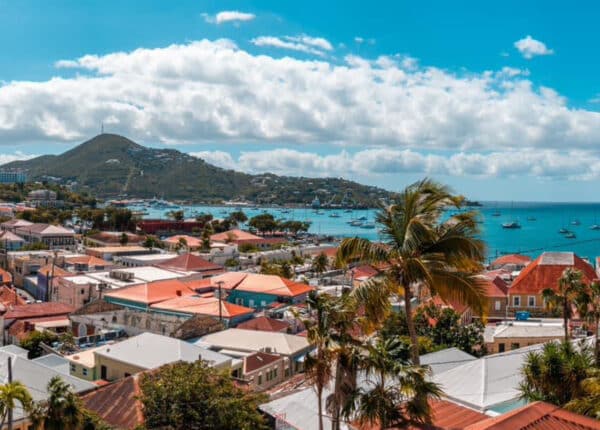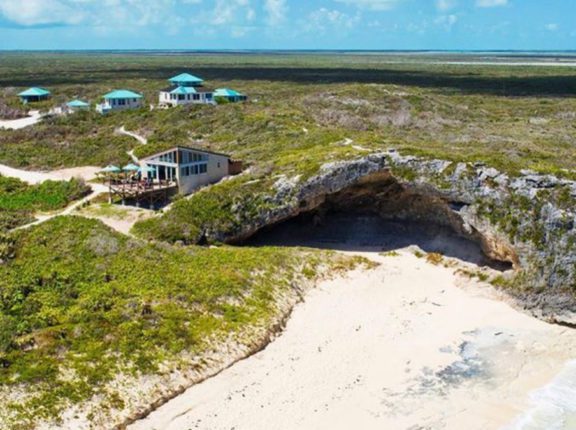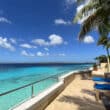Doing Business in the Caribbean: CARIFORUM Needs Reform
By Paul Hay
CJ Contributor
THE RECENT report, Doing Business 2014: Understanding Regulations for Small and Medium-Sized Enterprises, is one of a long-standing series of co-publications of the World Bank and International Financial Corporation, which records the global competitiveness of 189 nations from 2012 to 2013. Sixteen of these nations are Caribbean: Fifteen are CARIFORUM member states.
The current and previous ranking of these nations is shown in table 1. My immediate observation was that the Caribbean’s longest-standing independent nation – Haiti – was ranked last at 177, while the only non-CARIFORUM and dependent nation – Puerto Rico – was ranked first at 40; and these positions were unchanged from the previous year.
| Caribbean Nation | Population (Millions) | Income (US $) | 2013 | 2014 |
| Antigua & Barbuda | 0.1 | 12,640 | 63 | 71 |
| Bahamas, The | 0.4 | 22,833 | 77 | 84 |
| Barbados | 0.3 | 16,152 | 88 | 91 |
| Belize | 0.3 | 4,180 | 105 | 106 |
| Dominica | 0.1 | 6,460 | 68 | 77 |
| Dominican Republic | 10.3 | 5,470 | 116 | 117 |
| Grenada | 0.1 | 7,110 | 100 | 107 |
| Guyana | 0.8 | 3,410 | 114 | 115 |
| Haiti | 10.2 | 760 | 174 | 177 |
| Jamaica | 2.7 | 5,140 | 90 | 94 |
| Puerto Rico (US) | 3.7 | 18,000 | 41 | 40 |
| St. Kitts & Nevis | 0.1 | 13,330 | 96 | 101 |
| St. Lucia | 0.2 | 6,530 | 53 | 64 |
| St. Vincent & the Grenadines | 0.1 | 6,380 | 75 | 82 |
| Suriname | 0.5 | 8,480 | 164 | 161 |
| Trinidad | 1.3 | 14,400 | 69 | 66 |
In “Political Independence and Economic Development in the Caribbean,” I took a look at the Caribbean phenomenon that larger independent nations, like Haiti, generally have lower-income economies compared to the smaller dependent ones, like Puerto Rico: as it is in this case.
The article concluded that initial obstacles faced by the then newly independent nations were being overcome notably through the effort of the Organization of Eastern Caribbean States (OECS) and the Caribbean Community (CARICOM).
However, it is now apparent that much work still remains to be done.
In “Doing Business in the Caribbean: Lessons from Singapore,” I benchmarked the performance of Barbados, Jamaica, and Trinidad and Tobago in one indicator, from “Doing Business 2013,” against the top ranked Singapore, which is once again first in “Doing Business 2014.”
In my article, I indicated that Singapore shared a similar history and, in the 1960s, similar economic structures and institutions to the Anglophone Caribbean islands. But, it has subsequently achieved a greater level of development, and now consistently excels in the Global Competitiveness Index.
Singapore is now host country of the APEC Secretariat. If you have never heard of APEC, neither did I. But, APEC stands for Asia-Pacific Economic Cooperation. Founded in 1989, it is a forum that is committed to three main pillars: liberalization of trade and investment, business facilitation, as well as economic and technical cooperation.
APEC comprises 21 nations whose economies constitute 54% of the world’s GDP and 44% of global trade. If that is not impressive enough, the four highest ranked nations are members of APEC: including USA: on whom Puerto Rico is a dependant.
Regional factors play a part in driving reforms in the business regulatory environment of APEC member states. APEC concentrates reform in institution, regulation, and policy to facilitate more efficient markets and reduced trade barriers in their region.
There is still much variation in the performance of APEC member states: ranging from Singapore at 1 to Indonesia at 120. However, variation in the Caribbean amounts to 137, which has increased from the previous year: because Puerto Rico advanced 1 place and Haiti fell 3 places. But, no member of APEC has a low-income economy, such as Haiti.
The variation is similar but still larger when comparing Puerto Rico to Suriname: which has an upper, middle-income economy and ranked second to last among Caribbean nations. But, Indonesia is a lower, middle-income economy. So, this is no real comparison: especially considering that APEC outperforms the Caribbean by approximately 40 ranks.
“Political Independence and Economic Development in the Caribbean” also focused on the Anglophone Caribbean nations that were long-standing members of OECS and CARICOM.
This group comprises twelve of the fifteen CARIFORUM member states ranked, and shows much less variation in their rankings than their non-Anglophone colleagues, who had the lowest ranks.
The CARIFORUM states of Dominican Republic, Haiti, and Suriname had the three lowest ranks in the Caribbean.
They speak different languages; their economies vary from low to upper, middle-income; and, they have significantly different population and land sizes: though Haiti and Dominican Republic really occupy a single land mass: Hispaniola.
When the Anglophone nations of Belize and Guyana are added to this group, the five members occupy the lowest six ranks on the Caribbean nations. But, the characteristics of this group, as mentioned above, remain unchanged. For ease of reference, the eleven remaining nations shall be referred to as the small island developing states (SIDS).
The ranks in both groups typically fell from the previous year. Only Suriname improved its rank in the former. But, Puerto Rico, and Trinidad and Tobago improved in the latter. Nevertheless, the SIDS fell in ranks by an average of approximately 5 places compared to less than a place for non-SIDS.
Last month, a World Bank delegation reportedly headed to the Dominican Republic to start a “Competitiveness Project” in conjunction with their Economy Ministry.
But the problem is really a regional one, and CARIFORUM should drive the reform needed for capacity building.
The overall performance in “Doing Business 2014” has deteriorated from last year: both in rank and variation.
Puerto Rico is not a member of CARIFORUM, so the variation within CARIFORUM member states actually fell: but, this was due to a faster fall in ratings by the better performing SIDS group relative to their non-SIDS counter parts.
Nevertheless, the United Nations has projected greater growth within the non-SIDS group this year. So, reform is needed for them to sustain this growth. Finally, the naysayers who are opposed to any regional grouping should consider competing against the likes of APEC by themselves.
As before, “we have to acknowledge that Caribbean nations are uncompetitive, be willing to change and apply bold and innovative solutions.”
In my next article, I will discuss APEC’s approach, diagnose the Caribbean’s performance, and recommend target areas for CARIFORUM’s action.
Paul Hay, a Caribbean Journal contributor, is the founder and manager of Paul Hay Capital Projects.







